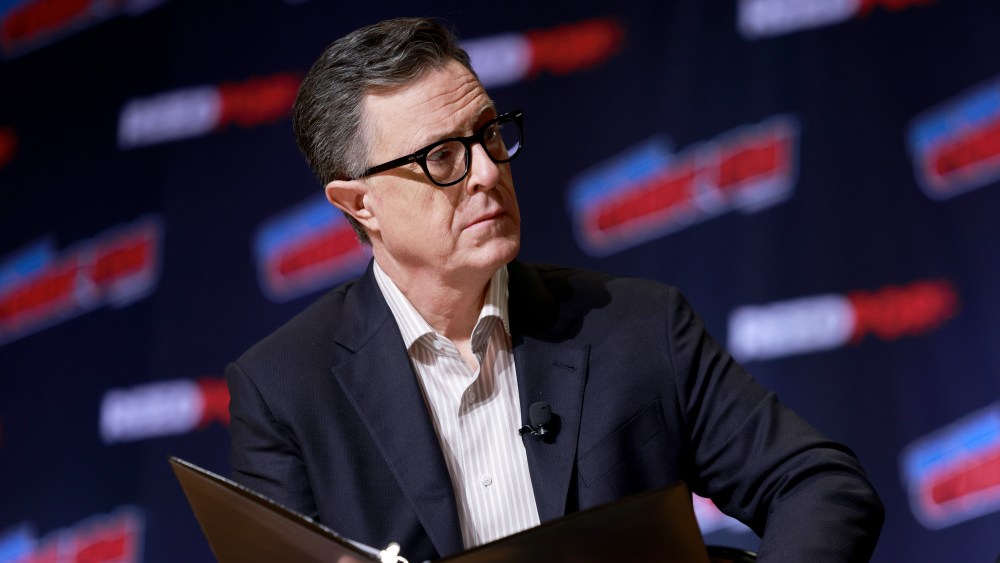President Donald Trump won the victory after Congress formally submitted $9 billion in authorized funds again, as well as $1.1 billion for PBS and NPR – which, public media executives say, could drive dozens of local stations to close.
Earlier Friday, the final approval was won by a 51-48 vote the day before the Senate, 216-213 vote, 216-213 vote, 216-213 vote. The invoice canceled approximately $8 billion in international support in the following two years, with $1.1 billion spent on public broadcasters on public broadcasting (funding NPR and PBS). Now, it is waiting for Trump's signature to enter the impact.
Trump is proudly known for his efforts to eliminate federal funds from PBS and NPR for a long time, conservative lawmakers have tried to do the same. The white house claims that public media retailers “expand radical, awakening propaganda disguised as ‘information’” and “NPR and PBS have zero tolerance for non-leftist views.”
Trump posted late Thursday night on his reality social platform: “The House approved $9 billion in cut packages, including cruel NPR and public broadcasts, wasted billions there.” “Republicans have tried for 40 years and failed…but no longer. It's big!!!”
Trump and various Republicans believe that cost cuts are justification for zero investment for PBS and NPR. Meanwhile, according to the workplace of the Congressional Fund, it is predicted that the huge and huge spending invoices authorized by Congress will extend the federal deficit by at least $3.4 trillion in the following decade.
Most people assist in publicly funding media following the survey. According to the CPB, about 53% of U.S. voters oppose the cancellation of all federal public media funds, with 44% assisting in refunding funds to them 44% of the votes based on the CPB's 1,000 voters since June 29 and July 1. Similarly, the survey found that 53% of respondents agreed that public media retailers have “complete, precise, beautiful” information that is contrary to just 35% of people, who usually say the same to the media.
Starting in October, the deal to revoke packages cut $535 million in CPB intervals per year.
PBS CEO Paula Kerger said in a press release Thursday that the cuts “all of our stations will be impressive, but for smaller stations and people who serve huge rural areas, it can be especially devastating.” She added: “Many of our stations will now be in for free unique local programming and emergency alerts to make heavy choices in weeks and months.”
NPR CEO Katherine Maher was called in a press release after the final family vote “the unfounded demolition of beloved local citizen places and the congressional act that ignores the will of the public.” “Mothers, fathers and young people, senior residents and college students, tribes and rural communities will all be hurt by this vote,” Mah said.
PBS and its member radio stations earn about 15% of revenue from CPB's federal funding. In the 12 months ended June 30, 2024, PBS reported full revenue of $721 million, funding positive and different assists. Based on NPR, approximately 2% of its annual working finance belongs to the grant types of CPB and federal companies and departments. NPR reported $336.6 million in fiscal 12 months ended September 30, 2024 for the 12 months ended September 30, 2024.
Still, the work budget for smaller local NPR and PBS stations relies more on federal funding. NPR's internal report estimates that if New York instances, up to 18% of the member stations in about 1,000 member stations could be turned off, while up to 30% would lose NPR programming.
Republicans criticized the left-wing and “awakening” bias of PBS and NPR. “U.S. taxpayers should not be under pressure to subsidize programming to exaggerate radical gender ideology in colleges or push for donations to police,” Sen. Eric Schmitt, a Republican of Missouri, said Wednesday.
Senator Ruben Gallego, a Democrat from Arizona, said before the Senate voted to approve the contract deal that cutting funds would destroy rural stations in his state and threaten young people's programming, such as “Sesame Avenue” and “Daniel Tiger,” which may not be feasible on business TV. “For many families, public television is every one of their only early childhood training tools,” the senator said.
The CPB was established by Congress through the Public Broadcasting Act of 1967. The mission of non-public, non-profit companies “to ensure joint entry to non-commercial, high-quality content materials and telecom providers based on their websites.”

